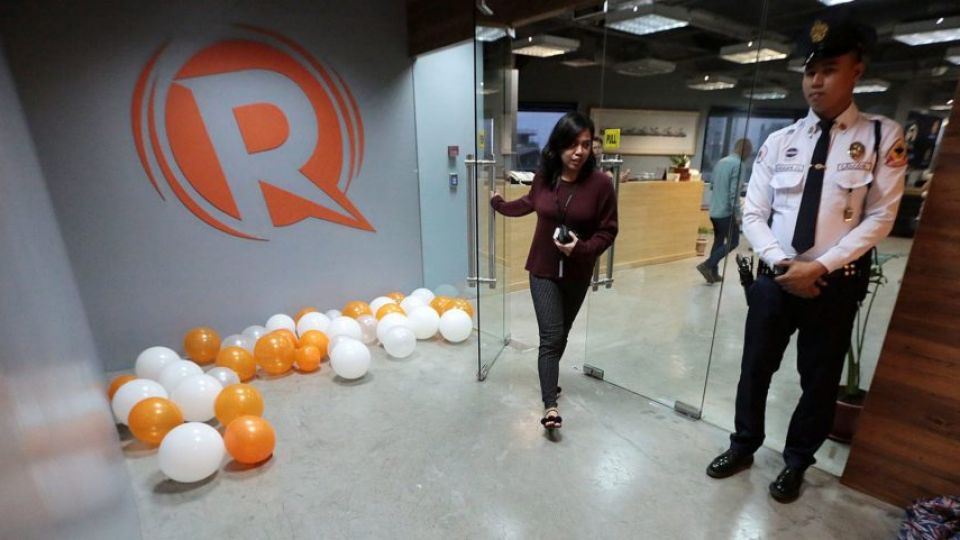February 6, 2018
In a year noted for excellent journalism, 2017 also saw remarkable attacks on the media – oftentimes from those holding the highest office.
From the arrests and murder of journalists in the Middle East to the closure of several organisations in Southeast Asia press freedoms seem to be deteriorating all throughout Asia.
“There’s no doubt that press freedom has gone into retreat across most of Asia. Only a few places are holding out against the trend, including Sri Lanka, South Korea and Taiwan. Starting with China, and the 41 journalists it held in jail as of last year, it’s a grim picture almost everywhere,” Steven Butler, the
Committee to Protect Journalist’s Asia Program Coordinator, said to Asia News Network.
The Philippines
In January 2018, the Philippines’ Securities and Exchange Commission (SEC) ordered the revocation of Rappler’s license to operate. In a 29-page decision dated January 11, the SEC cited violations of foreign ownership rules.
Rappler is known to be critical of President Rodrigo Duterte who has carried out an extra-judicial drug war resulting in the deaths of thousands. Despite being ordered to shut down, the Rappler is fighting the ruling and continues to publish hard hitting stories.
On January 30, Rappler said it had found millions of false social media accounts spreading fake news linked to the 2016 campaign of Duterte. Rappler chief executive officer Maria Ressa said social media was being used to manipulate opinion in the Philippines because the country was “actually the top country that goes online globally” with 97 percent of Filipinos online on Facebook.
She said that the government had sought to “silence dissent” through the proliferation of fake news, flooding social media with hate messages.
Cambodia
Cambodia’s government ordered the shutting down of The Cambodia Daily, which ran for 24 years, in late 2017. The Daily provided a rare voice of independence in Prime Minister Hun Sen’s tightly controlled bubble.
Hun Sen’s government oversaw the shuttering of not just the Cambodia Daily, but also multiple independent radio outlets in Cambodia.
The US Congress-funded Radio Free Asia had to also suspend its news operations amid a rising clampdown on independent media. Two of its former reporters were detained late last year on suspicion of illegally producing and disseminating news.
Myanmar
Reuters journalists Wa Lone and Kyaw Soe Oo were arrested in Myanmar on December 12 after they were invited to meet police for dinner on suspicion of violating the Official Secrets Act. The Ministry of Information cited the police as saying that they were “arrested for possessing important and secret
government documents related to Rakhine State and security forces”.
“These two journalists are being held for simply doing their jobs and have done nothing wrong. It is time for Wa Lone and Kyaw Soe Oo to be released,” said Thomson Reuters in an official statement.
Malaysia
In 2015, Malaysia’s Prime Minister Najib Razak arrested journalists under the Sedition Act including journalists that were investigating a corruption scandal involving the state investment vehicle 1Malaysia Development Berhad (1MDB).
China
China Freedom House notes in its 2018 report that China’s government has become increasingly repressive in recent years.
“The ruling Chinese Communist Party (CCP) is tightening its control over the media, online speech, religious groups, and civil society associations while undermining already modest rule-of- law reforms. The CCP leader and state president, Xi Jinping, is consolidating personal power to a degree not seen in
China for decades.”
The report highlights China’s Internet censorship and surveillance – which reached new heights after a Cybersecurity Law came into effect in June.
The Committee to Protect Journalists expressed concern over the disappearance of Li Huaiping, wife of American-Chinese journalist Chen Xiaoping, and called on police to disclose whether they have her in custody. Li Huaiping disappeared on September 18 after her husband carried out a series of interviews
with a high-profile government critic.
Bangladesh
A flurry of criminal defamation and sedition cases were filed against Mahfuz Anam, editor and publisher of Bangladesh’s The Daily Star in 2015 and 2016. The Daily Star is an ANN member.
“The flurry of cases against Anam by supporters of the ruling Awami League is clearly meant to intimidate and harass him and constitute an attack on the freedom of the press in Bangladesh,” said The Editor’s Guild of India in a statement.
There have also been high profile attacks on writers and bloggers who write on secularism or criticise Islam. At least three people have been killed in day time attacks.
Thailand
Since taking power in a 2016 coup, Thailand’s military government has cracked down on dissent and opposing viewpoints including summoning the heads of media corporation to ask for their “cooperation”.
The military junta has also banned, blocked or stopped the publication of articles related to the monarchy, which it sees itself as the protector of.
The military has also detained journalists incommunicado for what it considers to be unfair or biased reporting. The CPJ has urged Thai Prime Minister Prayuth Chan-ocha to reject new legislation increasing government control over the media and to repeal previous decrees expanding state control of the media.
India
Indian media outlets expressed shock in January when a reporter and her newspaper were served an arrest warrant for exposing glitches in the government’s biometric identity card scheme. The Editors Guild of India has condemned the decision.
In October, The Wire, an independent digital media platform, was singled out for reporting on the accumulation of wealth by the son of the ruling party’s chief.
The murder of senior Indian journalist-activist Gauri Lankesh in 2017 has been cited by many as proof that voices of dissent are being stifled in the world’s largest democracy. Lankesh had been a vocal critic of the ruling BJP party.
Pakistan
In early 2018, Pakistan’s Interior Ministry ordered the immediate closure of the Islamabad bureau of Radio Mashaal, the Pashto-language service of U.S. Congress-funded Radio Free Europe/Radio Liberty (RFE/RL).
The country’s intelligence agency, the Inter-Services Intelligence, had recommended its closure.


